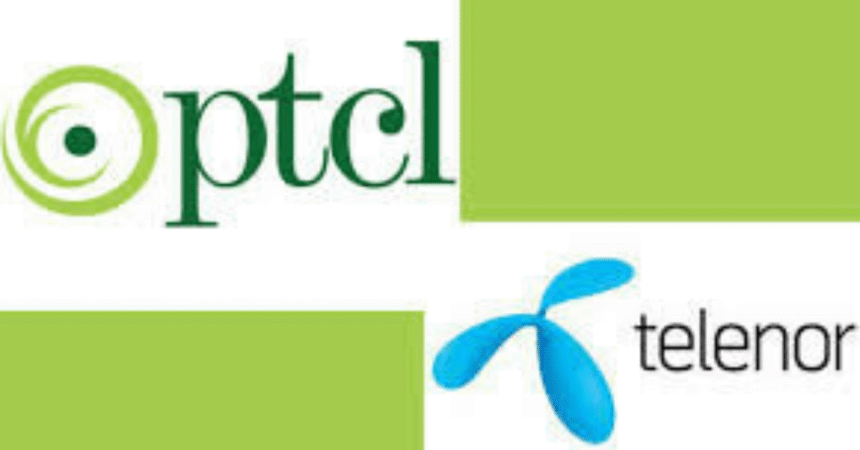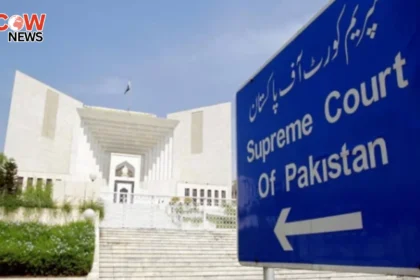In a significant development for Pakistan’s telecommunications sector, the proposed acquisition of Telenor Pakistan by Pakistan Telecommunication Company Limited (PTCL) has raised substantial concerns regarding market competition. During a recent hearing at the Competition Commission of Pakistan (CCP), representatives from Wateen Telecom and Jazz Telecom voiced strong objections to the merger, emphasizing the potential risks it poses to fair competition within the industry.
Background of the Acquisition
PTCL’s intention to acquire Telenor Pakistan, which includes the complete takeover of Orion Towers Private Limited, has sparked widespread scrutiny. The deal, valued at Rs108 billion (approximately $380 million), was announced in December and is structured as a cash-free, debt-free transaction. However, the agreement is contingent upon obtaining various regulatory approvals and meeting customary closing conditions.
The acquisition aligns with broader trends observed in the telecom industry, particularly as Telenor Group has been restructuring its operations in Asia. The Norway-based company has sought to consolidate its holdings in the region, focusing on building larger units through mergers in markets such as Thailand and Malaysia.
CCP Hearing Insights
The CCP hearing, presided over by Chairman Dr. Kabir Ahmed Sidhu, featured key discussions concerning the implications of the merger on competition. Mian Samiud Din, counsel for Wateen Telecom, articulated significant concerns about PTCL’s already dominant role as a wholesale supplier of Long Distance and International (LDI) services. He noted that PTCL controls nearly 48% of the LDI market share and warned that acquiring Telenor would allow PTCL to further monopolize the LDI services currently provided by Telenor.
Samiud Din also pointed out that recent changes had seen Ufone’s LDI services being shifted away from Wateen in Balochistan to PTCL, raising alarms about the potential foreclosure of competitors. The implications of such a merger could lead to an environment where smaller players in the market are unable to compete effectively, ultimately harming consumers.
Concerns from Competitors
Khalid Ibrahim, representing Jazz Telecom, echoed these sentiments, arguing that the acquisition would significantly bolster PTCL’s already dominant market position. He urged the CCP to implement stringent pre-merger and post-merger conditions to mitigate anti-competitive outcomes. Ibrahim’s suggestions included ensuring that the merged entities allow other mobile operators access to their networks under mutually agreed terms, thus fostering a more competitive landscape.
He proposed additional requirements for PTCL to guarantee wholesale, non-discriminatory access to other operators. This includes equitable terms for infrastructure sharing, fiber optic services, and spectrum trading, which are crucial for maintaining competitive parity in the telecommunications market.
PTCL’s Defense of the Acquisition
In response to these concerns, PTCL’s legal representative, Rahat Kaunain Hassan, provided a robust defense of the acquisition. Drawing upon her previous experience as a chairperson of the CCP, Hassan argued that the merger could lead to greater efficiency, economies of scale, and advancements toward the government’s vision of a “Digital Pakistan.” She contended that the acquisition would enhance the overall IT ecosystem, allowing for improved services and technological innovations.
Hassan emphasized that the deal was strategically beneficial not only for PTCL but also for the broader telecommunications landscape. She highlighted the potential for enhanced service offerings, which could ultimately lead to better customer experiences and increased accessibility to digital services for consumers across the country.
Regulatory Scrutiny and Next Steps
The CCP has requested additional data and information from both PTCL and Telenor to assist in their Phase II Merger Review. This regulatory scrutiny underscores the importance of ensuring that mergers and acquisitions do not undermine competition in the market. The commission’s role is crucial in determining whether the proposed merger aligns with the principles of fair competition and consumer welfare.
Implications for the Telecommunications Sector
The potential acquisition of Telenor Pakistan by PTCL is emblematic of broader trends in the telecommunications industry, where consolidation is becoming increasingly common. As companies seek to enhance their market positions and expand their service offerings, regulatory bodies like the CCP must carefully evaluate the implications for competition.
Should the merger proceed without adequate conditions to safeguard competition, the telecommunications landscape in Pakistan could face significant challenges. Consumers may experience reduced choices and higher prices, while smaller players may struggle to compete against a newly formed telecommunications giant.
The Future of Competition in Pakistan’s Telecom Sector
As the CCP continues its review, the future of competition in Pakistan’s telecommunications sector hangs in the balance. The decisions made in this case will not only impact PTCL and Telenor but also set important precedents for how mergers and acquisitions are handled in the industry.
For Wateen Telecom, Jazz Telecom, and other competitors, the outcome of this review is crucial. A favorable ruling for PTCL could reshape the competitive landscape, while stringent conditions imposed by the CCP could foster a more balanced environment that encourages innovation and fair play among telecom operators.
The Role of Regulatory Bodies
Regulatory bodies like the CCP play a vital role in maintaining competitive markets. Their assessments must be thorough and transparent, considering not only the immediate implications of mergers but also their long-term effects on the industry and consumers.
In an evolving digital landscape, where telecommunications services are integral to economic growth and social connectivity, ensuring a level playing field is paramount. The CCP’s vigilance in scrutinizing mergers and acquisitions will be instrumental in promoting healthy competition and protecting consumer interests.
The proposed acquisition of Telenor Pakistan by PTCL raises significant competition concerns, reflecting the complexities of the telecommunications industry in Pakistan. As Wateen Telecom and Jazz Telecom articulate their apprehensions, the role of the CCP becomes increasingly crucial in navigating these challenges.
As the review process unfolds, stakeholders across the telecommunications landscape will be watching closely. The decisions made during this period will shape the future of competition in Pakistan’s telecom sector, influencing everything from pricing to service quality for consumers.
Ultimately, the balance between fostering industry growth and protecting competition is delicate. It is essential for regulators to remain vigilant, ensuring that mergers and acquisitions do not compromise the fundamental principles of a fair and competitive marketplace.
#PTCL #Telenor #Telecommunications #CompetitionCommission #PakistanTelecom







